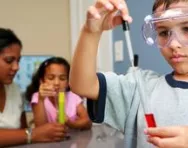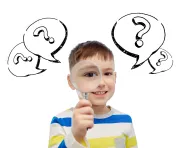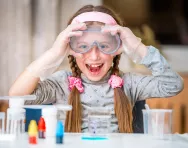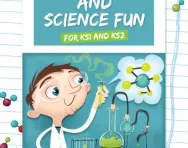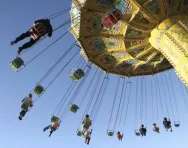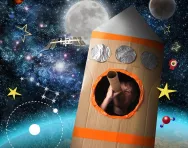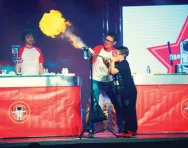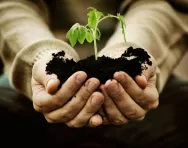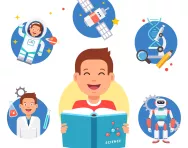TheSchoolRun.com closure date
As we informed you a few months ago, TheSchoolRun has had to make the difficult decision to close due to financial pressures and the company has now ceased trading. We had hoped to keep our content available through a partnership with another educational provider, but this provider has since withdrawn from the agreement.
As a result, we now have to permanently close TheSchoolRun.com. However, to give subscribers time to download any content they’d like to keep, we will keep the website open until 31st July 2025. After this date, the site will be taken down and there will be no further access to any resources. We strongly encourage you to download and save any resources you think you may want to use in the future.
In particular, we suggest downloading:
- Learning packs
- All the worksheets from the 11+ programme, if you are following this with your child
- Complete Learning Journey programmes (the packs below include all 40 worksheets for each programme)
You should already have received 16 primary school eBooks (worth £108.84) to download and keep. If you haven’t received these, please contact us at [email protected] before 31st July 2025, and we will send them to you.
We are very sorry that there is no way to continue offering access to resources and sincerely apologise for the inconvenience caused.
The science of everything
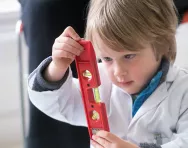
Science affects us all every day, from the alarm clock that wakes us up for school, to the food we eat, the buildings we live in, the cars we drive and the medicines we take when we are sick.
Science is also essential for a child’s learning and development. It's all about asking questions about the world around us and finding the answers through exploration and experimentation.
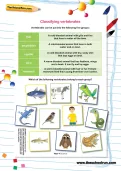
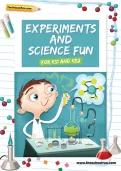
Download fantastic science resources today!
- Experiments And Science Fun pack
- Science Learning Programme for each school year
- All the instructions, questions and information you need
Children love to experiment, so it’s never too soon too introduce them to simple scientific methods and help them to get used to experimenting, questioning and hypothesising: a key aspect of learning.
So how can we parents get our kids enthused about science at home and while out and about?
Science at home
Science is all around us in the home, which means there’s no end of learning opportunities to embrace with your child.
Cooking up a storm
Cooking is a fantastic way to inspire a love of science. Who doesn’t love baking a cake – and eating it afterwards? It involves all sorts of scientific skills including measuring, following instructions in a methodical order, and experimenting with new flavours.
Try baking some cup cakes, getting your child to make a list of what they will need to buy. Head to the shops and let them be in charge of the shopping, and even the money.
Encourage your child to follow the recipe, weighing ingredients and mixing them your supervision. Once the cakes are baked, let them go wild, experimenting with different toppings. Don’t stop them if they choose an ingredient you know will not be nice, like Marmite; let them discover this for themselves.
Water world
Bathtime is a great time to bring science to life. Give your lots of different sized pots and help them explore volume by estimating which they think holds the most water. Let them pour different liquids from one vessel to another.
Show them how amazing air pressure can be using a clear cup, pushing it down into the water and showing how the water doesn’t rise up due to air in the cup. Tip the cup and fill it with water, then pull it slowly up to the surface and show how the water in the glass remains at a higher level than the bathwater due to air pressure around us.
Get some bubble mix and experiment with making bubbles in the bath. Use different shaped blowers and show that a single bubble is always round.
Towers of strength
Building towers is a great way for you and your child to discuss appropriate building materials. Read The Three Little Pigs and discuss why straw isn’t the best material to build a house with. Have a competition to see who can make the tallest tower. Try using blocks, then paper, then uncooked spaghetti joined together with blobs of marshmallow.
Science in the garden
The garden is a great place to experiment with science, whatever the weather – and it doesn’t matter if you make a mess in the process.
Bug hunt
Take your child on a bug hunt, encouraging them to lift up pots and rocks to see what they can find.
Once they have found a few bugs ask them, like all good biologists, to categorise them: for example, by the number of legs, or whether they’re arachnids or insects. Try drawing a simple table to record their findings, drawing a picture of each.
Flower power
Growing a sunflower is a slower process that involves patience: something all scientists must possess. Your child will enjoy planting the seed and tending to it daily. Explain that over time, it may become taller than them. Grow one for each member of the family and encourage your child to measure them regularly, recording the results.
Potion commotion
Children love potions, and mixing your own is a great way to learn about density. It can be rather messy, so the garden is the ideal place to do it.
Find a big transparent tub and add various ingredients to it: water soil, oil, leaves, toys, stones – anything you can find around the house. See if objects float or sink in the potion. Don’t forget to give it a mega stir at the end.
This is a great activity to do after reading George’s Marvellous Medicine by Roald Dahl.
Science at the park
Next time you’re at the park, think about how you can incorporate science into the fun.
Fascinating friction
Using the slide is a great opportunity to explore friction. Take different materials with you to sit on, such as a woolly jumper, a waterproof anorak, a cardboard box, a sheet of newspaper, a silk scarf.
Predict which will make you go fastest, then time how long each takes you to go down the slide on. Make a list and rank them in order from the fastest to the slowest.
Winner takes all
Have fun competing in different races: running, hopping, star jumps and so on. Try timing each other and recording who is the fastest. Encourage your child to predict who might win the race, and discuss the results.
Balancing acts
Use playground apparatus to practise balancing on different things. Explain that when we balance we use our ears, eyes, brains and muscles to help us. Ask your child to predict what might be the easiest thing to balance on, and what would be the hardest. Why do they think that?
Science at the seaside
The beach can be a great place to inspire a love of science over the holidays.
Beach volcano
Building a sand volcano has loads of child appeal and introduces them to simple chemical reactions.
You’ll need an empty bottle half filled with white vinegar and a splash of food colouring, and a pot of bicarbonate of soda and a spoon. First, build your sand volcano around your bottle, so you can only see the lid; you might want to collect shells and seaweed to decorate it.
Then remove the lid and tip a large spoonful of bicarbonate of soda into the bottle. Stand back and marvel at your erupting volcano.
Rock pool adventure
Take your child rock pooling: a great way to introduce them to biodiversity. Buy or borrow a spotters’ guide to help you identify the creatures you find. Make sure you never remove anything, though: just take a look and leave it where you found it.
Mini beach
Try creating your own mini beach, on the beach. Dig an area for the sea and place a sandwich box of water in it, then gather shells and seaweed from around the beach to create your own scene.
Science in the city
The city is full of opportunities to explore science, with a huge range of transport, architecture, science museums and more.
Which way next?
Brilliant buildings
Explore different buildings and bridges, discussing what they might be made of. Which is the tallest, and which is the smallest? Make sketches and explain that engineers use drawings and prototypes to decide how a building will eventually look and what it will be constructed with.
Everyday science learning tips
Children are eager to learn, whatever their age. Never dumb down scientific terminology when talking to them: they’re learning so many new words every day that these new words and concepts will be taken in like any other new experience.
Be aware of their shorter attention span, and keep learning in short bursts: don’t overload them with lengthy explanations unless they’re doing something hands-on at the same time.
Let them explore, make a mess, and make mistakes. Don’t correct them, but let them guess what might happen: this is how they’ll learn things for themselves.
Mini Professors is a science programme designed specifically for young children aged two to seven years. It follows the National Curriculum and allows them to explore, experiment and learn basic scientific principles in a hands-on, safe and fun-filled environment.
